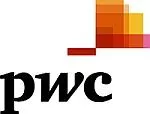The Minister for Budget and National Planning, Udoma Udo Udoma and the Executive Chairman of the FIRS, Babatunde Fowler hinted during an interactive session with the National Assembly on Tuesday 19 March 2019 that VAT rate is likely to go up to enable government fund the new minimum wage of N30,000 per month approved by the National Assembly.
FIRS subsequently clarified that the intention is to increase compliance rate and not tax rates but says Nigerians should be ready for a VAT rate increase by the end of 2019. Potentially this means an increase of about 50% will raise the current standard VAT rate of 5% to 7.5%.
The question is, should government increase VAT rate?
To put things in perspective, the average VAT collection in the past 6 years is about N900 billion. The revenue is shared 15% to the Federal Government, 50% to States and 35% to LGs net of 4% cost of collection to FIRS.
If the rate is increased by 50% (all things being equal) we will generate on average an additional N450 billion annually. Less 4% cost of collection to FIRS, all 36 states will get 18 billion per month translating to an average of N500 million per state. Since Lagos, FCT, Rivers, Kano and Kaduna generate 87% of VAT revenue, they also share a big chunk of VAT revenue, meaning that the financially disadvantaged states will get much less than N500 million monthly.
Unfortunately all things are never equal especially when it comes to tax. An increase in VAT rate will inevitably impact on consumption and VAT compliance. The combined effect will reduce the expected revenue.
Beyond the revenue impact, there will be other unintended consequences including:
- higher inflation, interest rate hike, more unemployment and people will generally become poorer
- without a VAT registration threshold and zero rating of basic consumption it will increase the burden on the poor and SMEs contrary to the 2017 National Tax Policy
- seeking to expand the VAT net while also increasing VAT rate at the same time is a conflicting strategy
Rather than the seemingly easy way out of raising rates, what can Nigeria do?
Nigeria can make twice as much from VAT at current rate by reforming the law, expanding the net and ensuring a robust administration rather than by increasing rate. This should include a review of VAT waivers, better policing of the border to improve import VAT collection, framework for VAT on imported services and digital economy.
Contemplating an increase in VAT rate now is bad timing and inconsistent with current economic reality. In any case the likely increase in revenue will not be sufficient to pay the new minimum wage.
The content of this article is intended to provide a general guide to the subject matter. Specialist advice should be sought about your specific circumstances.
We operate a free-to-view policy, asking only that you register in order to read all of our content. Please login or register to view the rest of this article.


